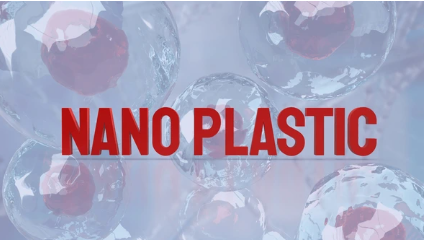The revelation about the extent of plastic particle ingestion from bottled water is indeed concerning and underscores the importance of addressing plastic pollution for both environmental and human health reasons. Here's a summary of the issue and potential solutions:

-
Understanding the Issue: Recent research has shown that bottled water contains significantly more plastic particles than previously thought, with up to 240,000 plastic particles per liter. These particles, particularly nanoplastics, can enter the body through ingestion and inhalation, posing potential health risks, especially to infants, children, and pregnant women.
-
Health Risks: Nanoplastics can penetrate tissues and organs, disrupting cellular processes and interfering with endocrine and hormonal pathways. This disruption can lead to hormonal imbalances and increase the risk of hormone-related cancers. Additionally, there are concerns about the potential impact on fetal development, as microplastics have been found in human placentas.
-
Solutions and Mitigation Strategies:
a. Reduce Plastic Usage: Minimize the use of plastic containers and packaging in food and drinks. Opt for products with minimal or no plastic packaging, and choose alternatives such as glass, stainless steel, or other sustainable materials.

b. Filtered Drinking Water: Instead of relying on bottled water, invest in a quality water filtration system for your home. This allows you to have access to clean, filtered water without the need for single-use plastic bottles. Using stainless steel or glass water bottles for carrying water on the go further reduces plastic consumption.
c. Choose Natural Materials: When possible, opt for clothing made from natural fabrics and products made with natural materials rather than synthetic ones. This reduces the introduction of microplastics into the environment and potential exposure to them.
d. Increase Awareness: Pay attention to the plastic usage in your surroundings and seek ways to minimize it. This includes advocating for policies and practices that reduce plastic pollution on a larger scale.
-
Personal Action: Each individual can play a role in reducing plastic pollution by making conscious choices in daily life. By being mindful of plastic consumption and actively seeking alternatives, you can contribute to a healthier environment and mitigate potential health risks associated with plastic exposure.
In conclusion, while the full extent of the health impacts of plastic pollution is still being researched, taking proactive steps to reduce plastic usage and exposure can help safeguard human health and the environment.
Shop our large range of Awesome Water® filtration systems, to reduce your nanoplastic and microplastic intake.

